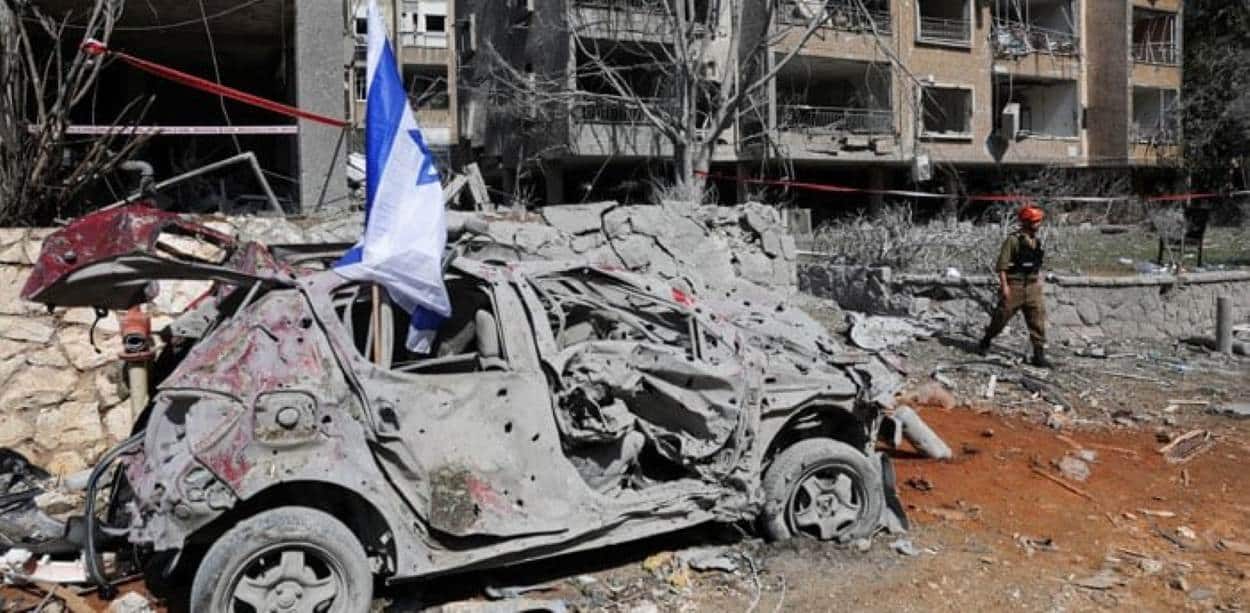Iran has vowed to continue its military response against Israel following Israel’s airstrikes on June 13, 2025, with a senior military official describing future actions as “painful” for the “aggressor,” according to Iran’s Fars news agency, cited by IRNA. Amid escalating tensions, Iran is reconsidering participation in scheduled nuclear talks with the U.S., blaming Washington for enabling Israel’s attacks, per Iran International.
On June 14, 2025, Fars, affiliated with Iran’s Revolutionary Guards, quoted an unnamed senior military official: “This confrontation will not end with last night’s limited actions. Iran’s strikes will continue, and this action will be painful and regrettable for the aggressors.” The statement follows Iran’s missile barrage, Operation Severe Punishment, which targeted Tel Aviv and Jerusalem in retaliation for Israel’s Operation Rising Lion, which hit Iran’s nuclear and military sites, killing commanders like Hossein Salami.
Iran launches retaliatory strikes, with blasts heard in Tel Aviv, following Israel's unprecedented attack on Iranian nuclear sites https://t.co/2aTqxaJOAL pic.twitter.com/L6NWp0JrRJ
— CNN International (@cnni) June 13, 2025Iran’s Foreign Ministry spokesperson Esmail Baghaei indicated uncertainty about attending nuclear talks with the U.S. scheduled for Sunday in Oman, stating, “It is still unclear what decision we will make by Sunday.” He accused Israel of acting with U.S. approval, saying, “It is inconceivable that Israel could commit such adventurism without coordination or conscious approval from the United States.” Baghaei called Israel’s strikes “reckless and unlawful,” holding the U.S. responsible for the consequences, per Iran International.
Israel’s June 13 airstrikes targeted Iran’s Natanz and Isfahan nuclear facilities and missile sites, killing 78 civilians and key military figures, per Tasnim News Agency. Iran responded with over 100 ballistic missiles, causing one death and 41 injuries in Israel, per Reuters. The escalation has disrupted global markets, with crude oil prices rising 5%, and derailed U.S.-Iran nuclear negotiations, heightening fears of a wider conflict.
Israel and Iran exchange strikes through the night with blasts heard in Jerusalem and Tel Aviv
Follow live: https://t.co/NlTAbSjA2y
— BBC Breaking News (@BBCBreaking) June 14, 2025The UN Security Council met on June 13 at Iran’s request, with Pakistan, Russia, and China condemning Israel’s actions. The U.S. defended Israel’s self-defence rights but urged a nuclear deal, with President Donald Trump distancing Washington from the strikes. IAEA Director General Rafael Grossi warned against targeting nuclear sites, offering to mediate.
Read: Iran Claims Downed Israeli 2 F35 Jets, Amid Missiles Retaliation
Iran’s commitment to further strikes and potential withdrawal from U.S. talks signals prolonged tensions. Independent verification of Iran’s military plans remains limited, so caution is advised.






